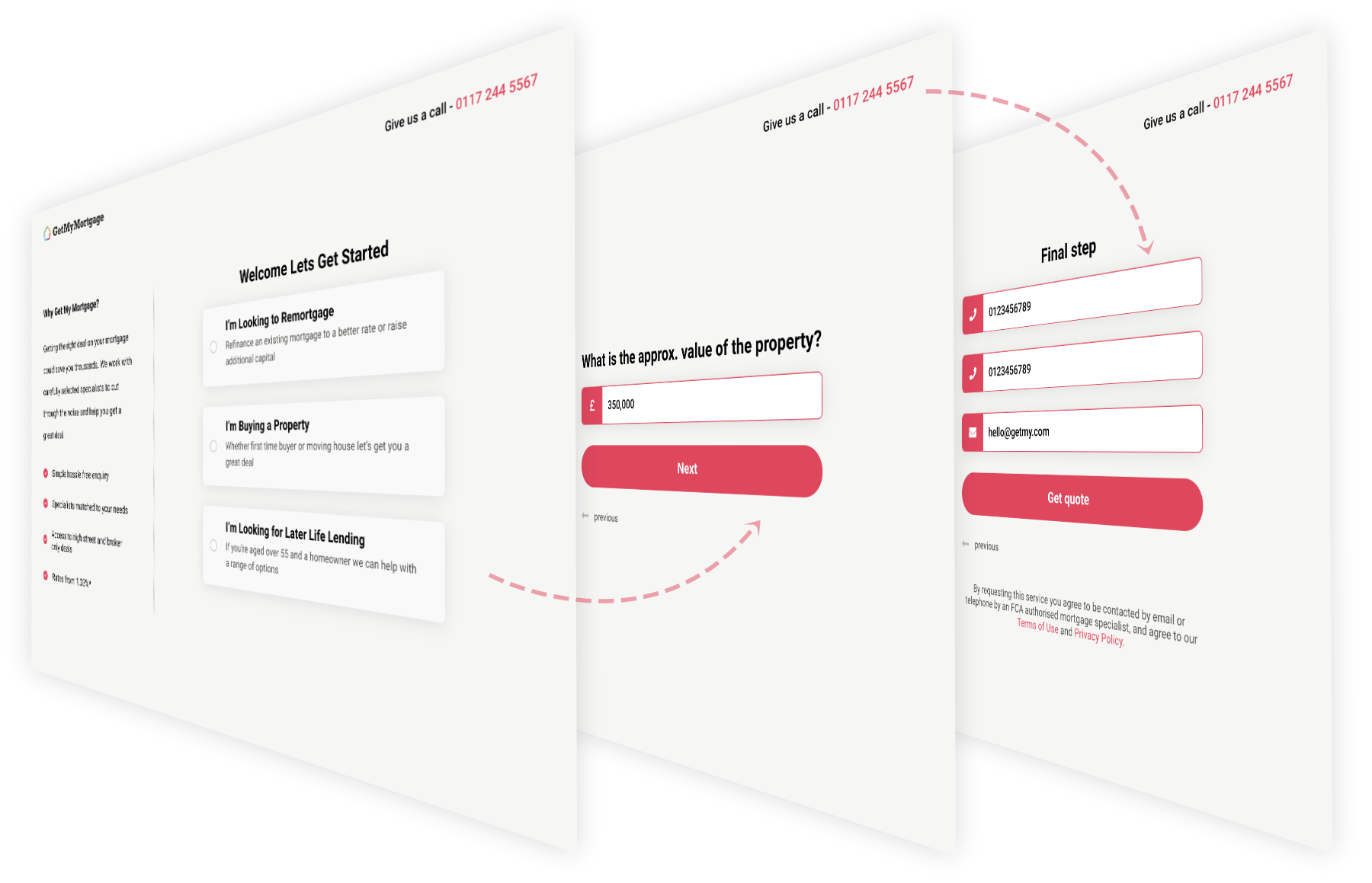


Complete a few simple details about your mortgage needs and property details.

We connect you to an expert mortgage advisor who will search the market and help find the best deal for your needs.

Review your personalised quotes and payment calculations without any pressure.
8 good reasons to use our 95% mortgage service

The loan to value (LTV) is critical in determining the interest rate you will pay from a mortgage lender.
The higher the LTV, the higher the interest rate you will pay.
The highest LTV typically you can get is 95%. This means a bank or building society is prepared to lend you the money to buy a house, and you pay the 5% balance. As the risk for the lender is higher that you may not pay back the loan, the interest rate you will be offered to borrow the money will reflect this.
Yes.
Although most lenders withdrew their 95% LTV mortgage ranges during the pandemic due to concerns that people would not be able to meet monthly repayment commitments.
Not all lenders offer 95% LTV mortgages.
The good news is that most high street banks currently offer 95% LTV mortgages.
Before you start hunting for your first home you will need to save for a deposit.
As a rule of thumb, you will need at least 5% of the cost of the home you want to purchase.
For example, if you want to buy a £250,000 house you will need to save £12,500 (5%) for the deposit.
Saving more than 5% will give you access to a broader range of cheaper mortgages available on the market and a lower interest rate.
To get a 95% mortgage, a lender will want to know that you are low risk.
So, what will help in getting your application over the line?
To maximise your chance of success, we work with specialist mortgage brokers who understand the challenges of getting a mortgage suited to your circumstances.
Before you start hunting for your first home you should have a good idea of what your budget is.
Mortgage lenders need to ensure that the amount you borrow is something you can afford to pay back over time.
As part of their calculations, they will typically apply a multiple of income to determine what they are prepared to lend to you.
While a multiple of income is used by many lenders, other factors will also come into play such as the deposit you have and your monthly outgoings when assessing affordability.
Lenders as part of this assessment can tap into independent data to determine what they see as a reasonable cost for items of expenditure such as food, travel, and entertainment costs based on the number of adults and children (if any) in your household. Lenders will typically analyse your spending behaviour through looking at your last 2 to 3 months’ bank statements.
Existing credit costs such as car loan repayments or credit card bills will also be included.
What level of deposit have you saved up?
Most UK mortgage lenders will require you to have at least a 5% deposit.
If you can put a larger deposit down, then lenders are more likely to offer you a higher income multiple.
In calculating out how much you can borrow most lenders offer an AIP “Agreement in Principle” which is an indication of what loan they are prepared to offer you and on what terms based on your circumstances.
You can get an AIP using our mortgage service. You will need to provide:
A mortgage is a long term loan (5+ years) taken out to buy property or land.
Most mortgages are taken out for 25 years to spread the cost of buying a property, but the term of the loan can be longer or shorter.
Mortgages are typically taken out through banks and building societies. These lenders will charge interest on the mortgages they offer as well as other fees e.g., Product fees which are added to the loan and early repayment charges if you redeem the mortgage early.
Lenders secure the mortgage you take out by placing a 'charge' on the title to the property. This allows the lender to sell the property if you are not able to keep up repayments on the mortgage.